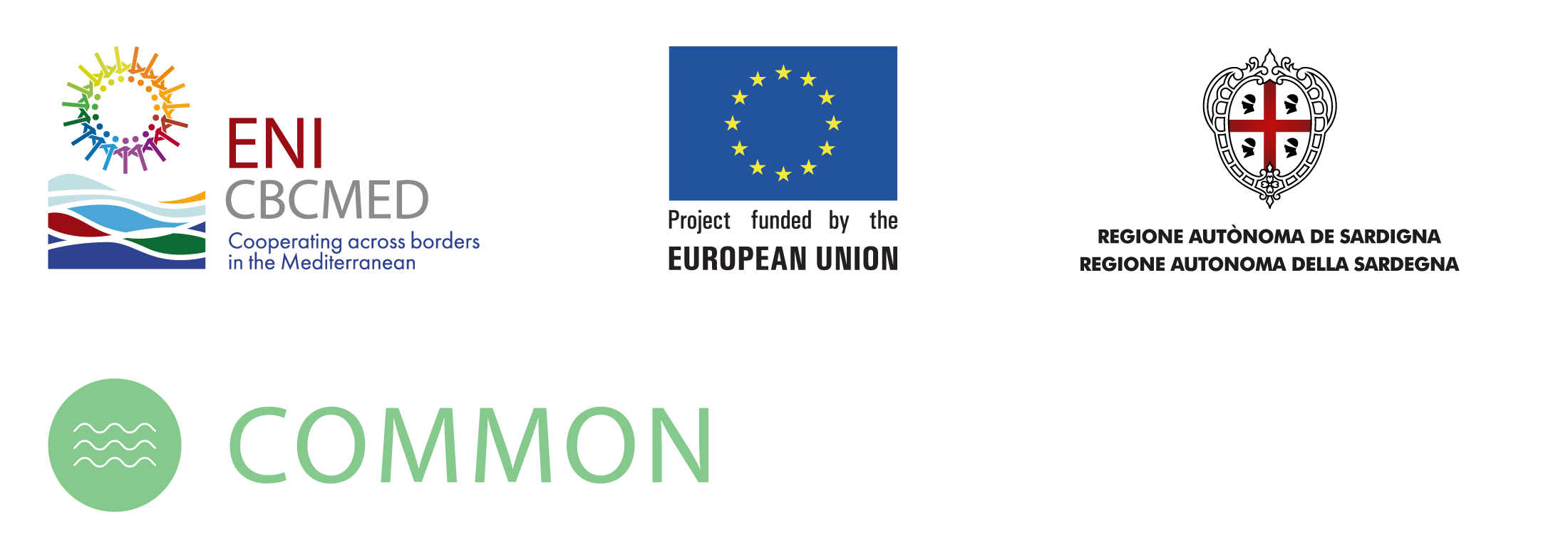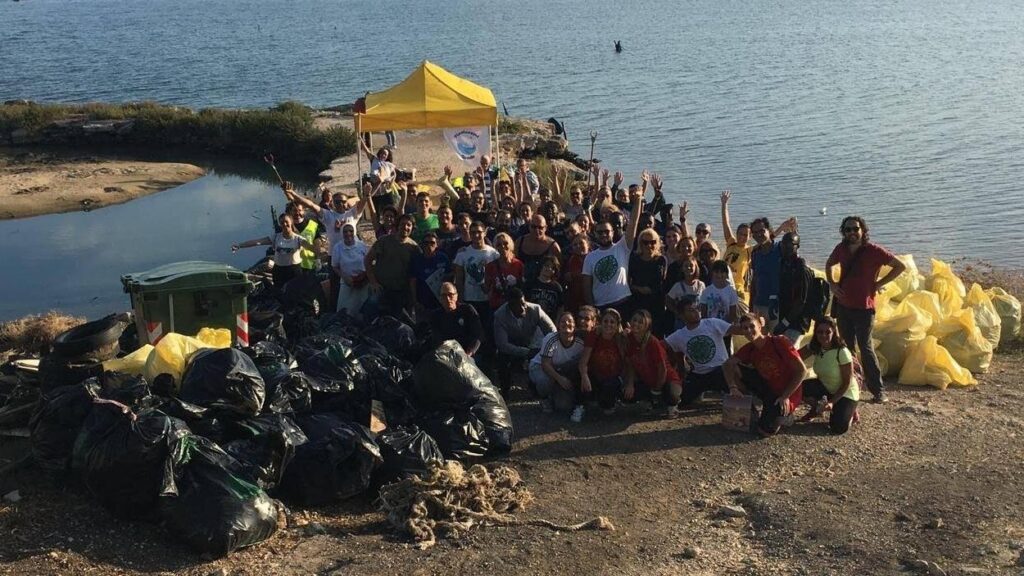Plasticaqquà APS is an Italian active citizenship group born in 2013 in Apulia (Taranto), one of the pilot areas of the COMMON project. He began to raise environmental awareness through voluntary waste collection on the coasts of the “two seas of Taranto”: Mar Grande, a portion of the Ionian Sea and the Mar Piccolo, a vast internal basin, connected to the outside by two navigable canals. The association collaborates with many other associations, schools and institutions, they have started an eco-library to donate books to those who give back plastic bottles and carry out eco-educational workshops for the little ones.
This year, they joined the COMMON Clean Up The Med campaign, contributing to the sampling and monitoring of marine littering. Giuseppe Internò, president of the association, dedicates an interview to the COMMON project. “Initiatives such as Clean un the Med are very useful“, he says, “both to raise awareness and to unequivocally highlight the causes of pollution to propose and implement solutions and interventions at the root of the problem“.
How and when was your environmental commitment born?
“Long time ago. I was a Scout for many years, and I got to know and appreciate what nature has to offer and the need to respect and protect it. My activism extends to the Ilva issue, and to various social fields. Among the members of Plasticaqquà there are those who have practiced sailing and canoeing, those who still practice trekking and hiking, I think it was natural to find ourselves and decide to work together”.
What are the challenges you have promoted over the years to protect the environment and our seas?
“We have proposed several challenges. One among others, the #radicalcicc media campaign, an initiative that invites all people to send us photos of waste collected, wherever they were. We have also other projects in the pipeline, and we hope to be able to implement them as soon as possible”.
How much more to do for an “ever bluer future”?
“We expect a greater sensitivity and awareness of the environment. We trust very much in the new generations: it is to them that we turn our attention and our commitment. We see some small but very encouraging results. There is a lot to do, we are behind, and we are extremely late compared to many other countries. It would be necessary to cooperate more by linking producers, operators, associations, citizens, researchers, and anyone who can really contribute to improving even the small things that replicated over time and on a large scale produce enormous results”.

